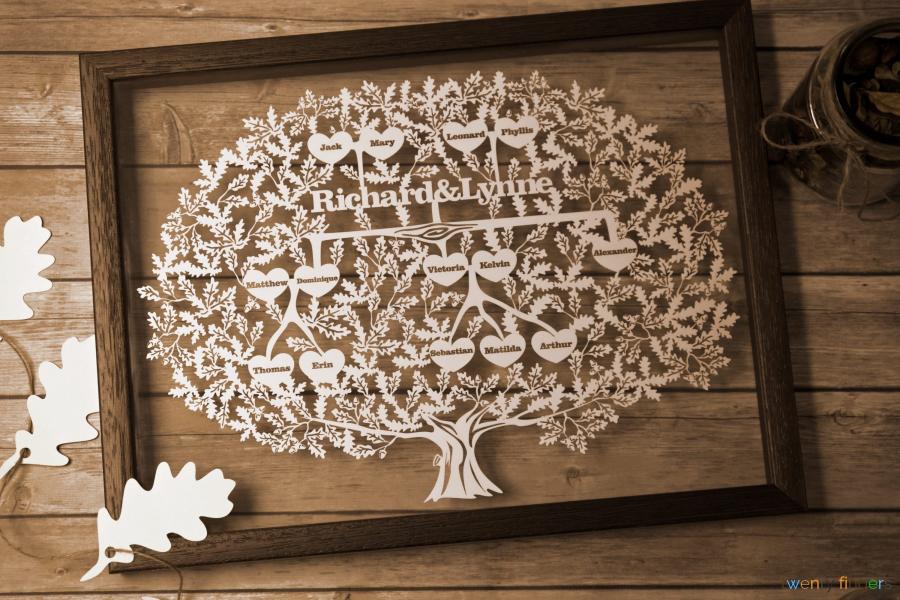What is genealogical translation?
December 01 , 2021What is genealogical translation?
by Target Language Translation Services
- December 01 2021

Genealogical translation is a growing market niche that is about the study of family history. For instance, an individual wishing to join a lineage society may need to document birth, death and marriage according to the society’s standards. And someone else may simply want to learn as much as possible about their sixth great-grandfather, even though they lived in another country whose records are kept in a language they do not speak. In addition to tracing ancestors for their clients, genealogists can serve significant business and legal needs. For instance, attorneys working on heirship court cases often call in genealogists to prove family relationships and search for missing heirs.
What ties the branches of the genealogical profession together is the need to uncover relationships through analyzing evidence drawn from artifacts, documents, personal recollections, artifacts, DNA, oral histories, etc. Key to this analysis is the ability to comprehend the historical conditions and context in which the source document was created. Even more basic is the need to be able to read and understand the languages in which these documents are written. This is where the genealogical translator steps in.
Like the subspecialties of legal, medical or business translation, genealogical translation demands specialized skills that can only be developed through study and experience. However, you’ll find the hard work will pay off with opportunities in a rewarding and academically intense field.
Genealogical translation involves the translation of historical and modern-day documents, like records pertaining to birth, marriage, divorce, and death, as well as court records, deeds, academic records, etc. The work of the translator might also extend into research, such as searching foreign-language websites and communicating with foreign archives, parishes, and libraries. The genealogical translator can provide a simple translation of a historical document, such as a birth or baptismal record, or a more detailed analysis. For example, why and how was the document created? Is it typical of the time and place in which it was recorded? Does it include boilerplate language? Are there any peculiarities that make it unusual? Are there any clues, such as notes in the margin, which would lead the researcher to other documents? In this sense, the genealogical translator can often serve as a research guide.
Tips for hiring a translator for genealogy
Paleography
First and foremost, translators must be able to read older handwritten documents in their country’s source language. The ability to read older handwritten documents is a must for every genealogical translator. Scripts vary greatly depending on the time period in which the record was written, but also depending on the scribe. Abbreviations and symbols were also often used to save space on expensive paper, and to save the scribe’s time. A translator with the ability to read older forms of the language and handwritten documents will find themselves in the perfect position to assist genealogists who have otherwise given up all hope.
Language competency
A thorough knowledge and level of fluency in the chosen language is an obvious necessity. As a general rule of thumb, it'd be better to hire a native English speaker to be sure that your document will read well and accurately in your own language. Why? When writing a document for a client, the translator should be 110% confident of every word he or she types, understanding every small nuance the translated word might convey to you, the target reader. The text usually also reads much more fluently if written by a native speaker. There are of course exceptions to every rule: there are many translators who grew up in bilingual households, as well as talented linguists who do translate accurately and write well in both their native and non-native languages.
Also important is a targeted understanding of additional languages that might be included in historical documents. For instance, Italian records might include Latin, the language of the Catholic Church.
Historical and geographical knowledge
Shifting boundaries can greatly impact the documents in terms of how they’re written and where they’re kept. For instance, France currently has 101 jurisdictional districts called departments, including its foreign territories. The number of departments has varied over time, meaning the translator will need to know in which department to search during the time the document was written. This extends to France’s foreign holdings. For instance, the Department of Gênes no longer exists. It covered Genoa and its surrounding area in what is now Italy. Genoa and the Liguria area were taken by Napoleon in 1805 and remained part of France until his defeat in 1814.5 Many of these records—mostly written in French, but sometimes in a mix of French and Italian dialect—can be found in Genovese and Italian archives.
Credentials and experience
Nowadays, most translators have websites which list this information, but if not, feel free to ask them. In the age of the internet, trust is important, and translators understand that you need to trust them with your project and your financial investment. If they have a review section on their website, check out the reviews before going forward with your project.
Understanding of project cost and time required
Experienced translators should have many projects under their belts, allowing them to provide you with a general idea of cost and time required for your translation. It is important to discuss these things ahead of time so that there are no surprises for either person upon completion of the job.
If you need a translator for your genealogy document, I’d love to hear from you. Feel free to contact me any time through our website.
This article is reprinted from ATA and Lisa Louise Cooke.
If there is a copyright, please inform us in time, we will delete it right the first time.